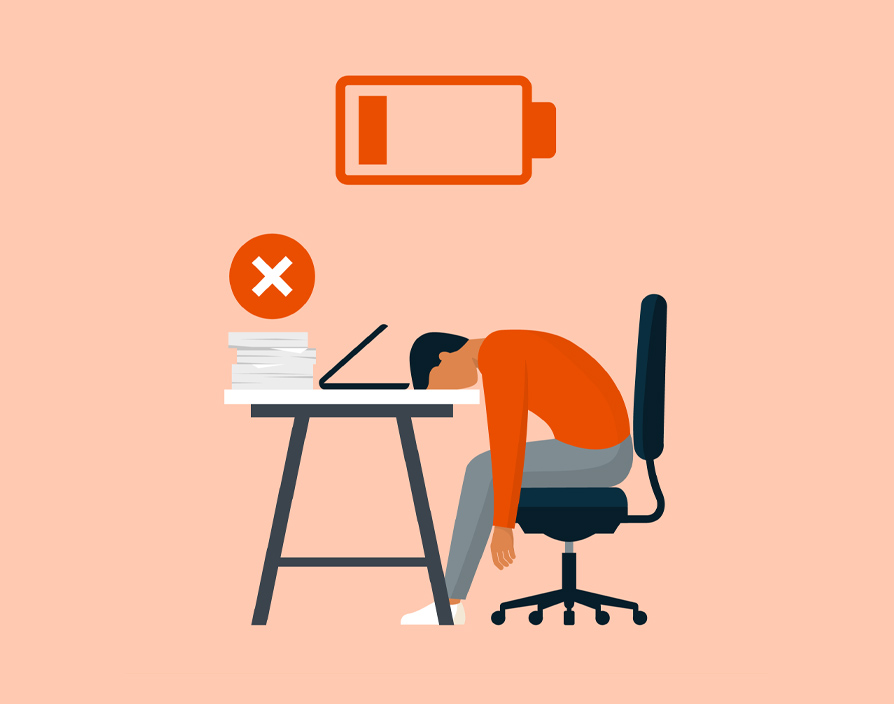In the last two years we have seen the way we live and work turned upside down, and while burnout was an issue long before the pandemic, Covid-19 has undoubtedly had an effect on our mental health.
One theme that’s undoubtedly emerged over the last couple years is that mental health is health and needs to be prioritised just as much as we prioritise physical health. In May 2020 a staggering 41 per cent of employees said they were burnt out, highlighting the need for both employees and employers to address this issue head-on.
It’s more than feeling a bit stressed
Burnout is more than being a bit stressed. It’s a form of extreme chronic stress that can manifest in a variety of ways that can cause you to feel fatigued, disconnected, and worn out.
Though people experience burnout differently, some common high-stress symptoms that could indicate burnout include: emotionally exhaustion, headaches, muscle tension or high blood pressure, low motivation or productivity, self-doubt, and feelings of loneliness or detachment.
It’s time to shift your mindset
While there isn’t a magic pill that we can take to alleviate the overwhelming sense of stress and anxiety that burnout causes, we can change our mindset to minimise the effects.
Addressing burnout involves collective responsibility ‘ it takes a team, not an individual, to fix the problem. For employees, reaching out for help with burnout can be scary. But organisations need to ensure they have a culture where people feel safe to reach out for support and help.
The importance of supporting managers
People Managers have a big effect on how their team feels at work. According to the Mayo Clinic, the person you report to at work has a greater effect on your health than your family doctor. By giving managers the tools and skills to prevent their own burnout, they will be better able to support their team.
In addition, helping small-to-medium enterprise (SME) leaders develop the leadership skills that will prevent team members from burning out is also key. Providing people managers with a coach to provide tailored support can ensure that they have the skills in place to support their team in the most effective way. Overall, we’ve found that BetterUp coaching can reduce workplace burnout by 19%.
Companies need to take burnout seriously
Burnout needs to be addressed at the root of the problem ‘ promoting someone or giving them a pay rise might bring short term excitement and engagement, but it won’t fix the burnout in the long run. How companies address burnout will determine their level of success and to create meaningful and lasting change.
So, what can SMEs do to tackle employee burnout?
It needs to be a tailored process ‘ one size does not fit all. For starters, organisations can evaluate their time off policies and culture around taking breaks. If leadership is perpetuating an always-on culture or discouraging employees (whether consciously or not) from taking time off, this can fuel burnout.
Managers should have regular conversations around bandwidth and priorities. It’s unreasonable to keep adding to to-do lists without deprioritising certain tasks or without staffing teams appropriately to manage the increased workload.
Building on our strengths is also an effective path to success, rather than focusing on our weaknesses. Fostering a culture that helps people leverage their strengths boosts performance and enhances their feeling of being in control, which is effective for preventing burnout.
On an individual level, employees should feel empowered to take time off when needed. A recent BetterUp study found more than 7 in 10 employees have pushed through a mental health struggle to avoid taking time off over the last few months ‘ this can only exacerbate burnout. Creating the psychological safety necessary to speak up and ask for help and support is key. Data from BetterUp has found that managers can reduce burnout risk by 11% by creating a psychologically safe environment. We can also be honest with ourselves at the first signs of burnout, rather than waiting for the issue to worsen before addressing it.
Burnout is a complex problem, and there’s no quick fix. However, companies that create space for candid conversations about burnout and take steps to tackle work stress can help push back against this increasingly common workplace issue.
“
Share via:








































